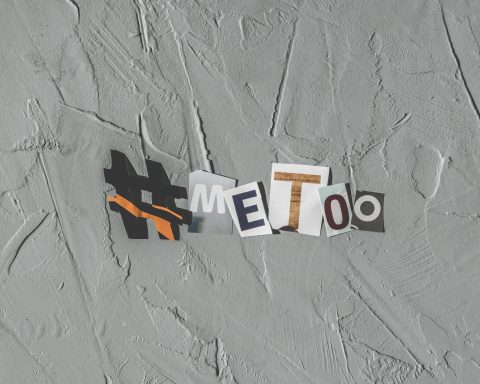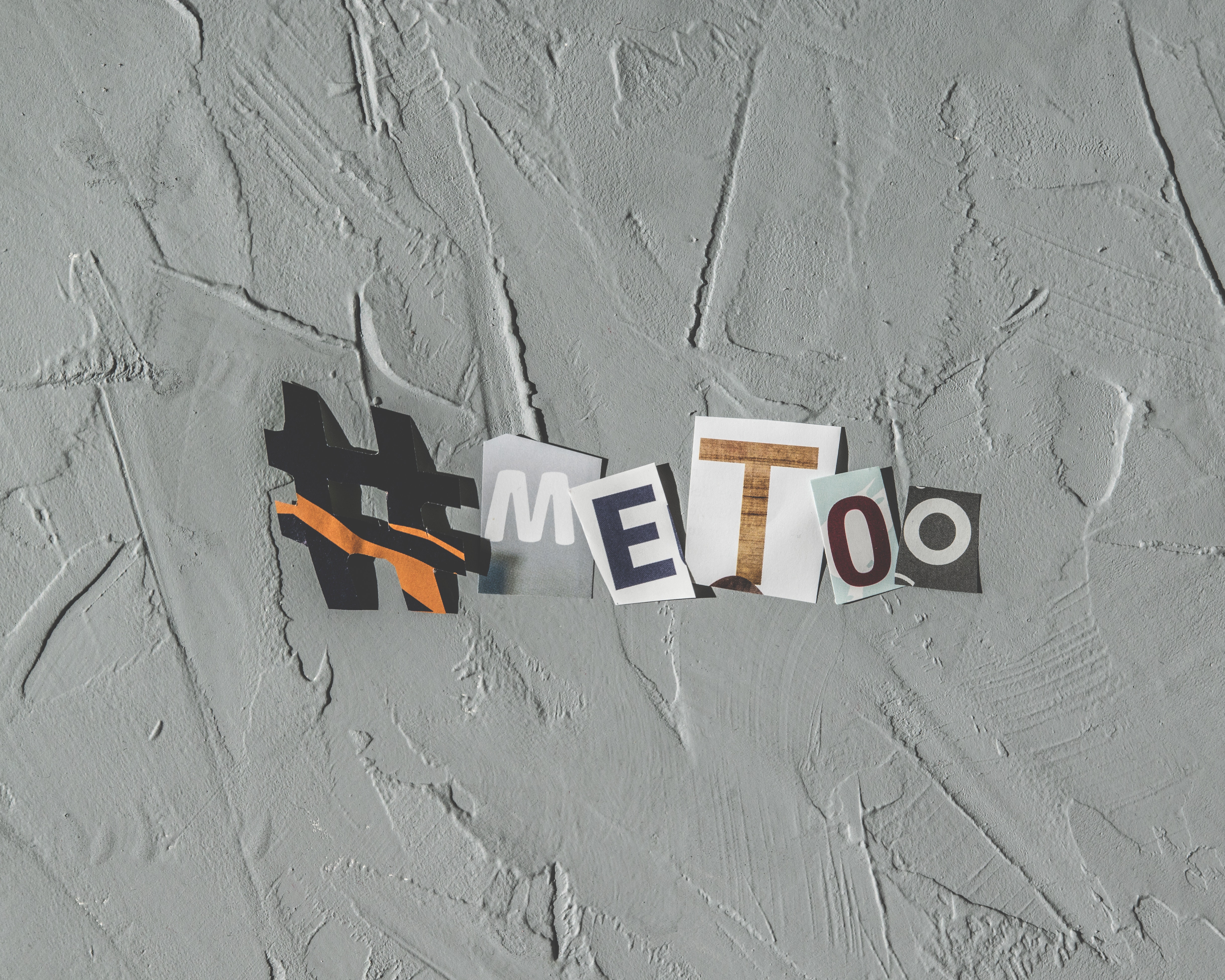Notes For One Pillar Community

Lincoln quoted Jesus when he said, “a house divided against itself cannot stand” (Matthew 12:25). Jesus also referred to a nation or city divided, and Lincoln was right to apply the verse to a United States divided over slavery. The verse comes from an account of Jesus confronting the demonic powers of confusion and isolation—which still need to be named for what they are, confronted, and cast out. Today this task falls to each of us, but requires communal effort; so, I begin this editorial summation of our issue Defending the Common Good by naming some modern-day “demons” that inhabit a range of issues. I then address the supportive “pillar” work which religious communities must do in order for our national house to stand united in the face of those evils. We, as communities of faith, need to demonstrate both ethos and policy values that make unity possible.

Today’s demons again include racism, a persistent and broad undercurrent that surges upward in times of fear. Ta-Nehisi Coates warns us never to pretend racism is limited to the white underclass, as a multitude of punitive policies are supported by majorities of whites in all classes. Other demons, too, threaten both our national “house” and what Martin Luther King, Jr. called, “the world house.” Willful blindness to environmental destruction is another demon, and one that possesses very deep corporate pockets. Greed itself, that root of much evil, uproots people from humble homes and tells people it is “conservative” to oppose conservation of nature and wilderness. The fake god of compulsive and conspicuous consumption magnifies and celebrates inequality, creating a false heaven of celebrity that distracts from addiction and depression. Even good entertainment often replaces community and connection, for those overworked and emptied of loving purpose.
___________________________________________
Fighting these demons [of racism, willful blindness, and greed] is more difficult in the Era of Social Media, which adds a second “cyber-floor” to the national house, and makes the work of unity harder.
___________________________________________
Fighting these demons is more difficult in the Era of Social Media, which adds a second “cyber-floor” to the national house, and makes the work of unity harder. Major generational differences exist in adapting to new technologies, and educational differences among regions create whole micro-cultures. Some connections with family and friends become stronger online as we share information we “like”, but both on- and offline, the institutions of power in society operate in a very material way.
A 2017 New Yorker article contends that recent public protests (against the second Iraq war, against gun violence, for women’s rights, and for greater economic equality in the Occupy movement) have had limited impact.[i] The writer has a point: even massive rallies slide into a media sphere in which most people are detached observers. Most non-profits struggle to patch some hole in the safety net, treating symptoms of the disease of inequality while corporations (in general) gain in power and profit, leeching resources into tax havens. The plight of those in poverty increases, as do their numbers as the middle class is squeezed.
As described in this issue by Mark Levine’s “In Defense of Truth,” abuses of truth riddle citizenship with insecurities in a United States whose ethos and direction are up for grabs. In the world of nations, the mythic dragon of grandiosity still fuels dreams of US greatness that are increasingly hollow, a national narcissism writ large without empathy, self-knowledge, or understanding of others.[ii] To speak casually of “totally destroying” another nation is as much a hollow threat as it is the threat of a hollow person. In “Who Would Be Great”, Ray Anderson writes of how leaders with that kind of motivation miss the mark, completely detaching power from service.
Thus “zombie wars” in Afghanistan and Iraq continue long beyond any geo-strategic purpose, grinding up suffering people—including our own soldiers, kicked down the road for the sake of national image and political position. This is an empire of stagnant thinking where nuclear weapons are modernized rather than neutralized and the supreme budget priority is to feed the world’s greatest war machine. Such demons thrive on division and rot the house from within as we reap the collective moral injury that we have sown (Ken Burns’ Vietnam War documentary series speaks to that enduring moral damage to our culture). And so, when we write of “defending the common good”, we do not mean a militaristic defense. Rather, we seek to defend our common moral integrity from the fallacies of nationalism, fear, and division.
Defending the common good is a necessary but not sufficient framework with which to unify and rebuild a US house of “liberty and justice for all.” The common good is a moral guide and goal, but what we have seen in the articles of this issue is that we are indeed playing defense. The spirit of destruction that unleashes polluters and dismantles protections of workers and consumers shows that “the system” is indeed “rigged”—if not in the ways that political victors claim. It incentivizes politicians to seek out exclusive constituencies at the cost of building common ground.
Is it not corruption to know that seats are won by undisclosed money and gerrymandering in campaigns designed to obfuscate rather than educate?
But say we get some of the demons out. Jesus warns us in the parable of the empty house: when the house is cleared of evil, more demons come back to fill the empty space. A house united needs to be filled with good, or the evil will return (Mt. 12: 43-45). In this Jesus is like a community organizer saying, “you can’t beat something with nothing.” We must work, not as an empty house, but as a House United.
___________________________________________
A House United approach would recognize that current and future challenges need new solutions, and that because of the inter-connectedness of developed society, government has a role in ensuring that everyone benefits from those new solutions.
___________________________________________
A House United requires—from this religious ethics standpoint—an actively critical citizenship (or “honest patriotism”, the subject of our next issue) that focuses on what America must become as much as on what it currently is. This means policies that actually serve a sustainable future, with meaningful work at living wages, good education, and affordable healthcare for all. A very good policy vision, in fact, can be found in the Social Creed cited in my introductory editorial. Although morally grounded, these policies must be judged on their practical merits, supported by as much evidence as possible, and not on the basis of blind ideology. A House United approach would recognize that current and future challenges need new solutions, and that because of the inter-connectedness of developed society, government has a role in ensuring that everyone benefits from those new solutions.
Here is a brief set of considerations suggested by the House United image.
- The concept of a House United speaks to a deep need for coherent relationships among groups and regions of people, and for policies that fit together. But a “House United” must not be confused with a fused, exclusive unity, i.e. a “blood and soil” homeland. It is the opposite that is needed: an inclusive national identity that understands both mutual dependence and the membership of all to be crucial elements of human survival. Coherent policy and social unity should be mutually reinforcing.
- A House United redefines the hyper-individualistic “American Dream” as a promise to reward collaborative effort. Rather than a palace of plutocratic parasites, it suggests a household economics of sustainable community, without exploitation of other humans or other communities of creation.
- A House United suggests that every “single” issue—except perhaps climate change—is wrong, however tactically successful “single issue” politics may be in the short run. Even on climate change, where I agree that “crimes against humanity” are being committed[iii] when climate change is willfully denied, any single goal of “outlawing” something needs to address the ethos as well as the effects of the behavior. That fossil fuels may still be needed in certain areas, for example, does not mean they should be encouraged in the much larger sphere (where they should be phased out). In our culture, churches and synagogues should have the longest perspective and greatest resistance to over-simplification.
- A House United ethos would resist calls to withdraw into new forms of monasteries or other enclosed communities, but rather, in the prophet Jeremiah’s words, “seek the welfare of the city” where we are placed, even if it is the Babylon of exile (Jer. 29:7). Recently Rod Dreher has suggested that it is time for US Christians to take the “The Benedict Option,” to create separate communities where Christian culture and values can be fostered.[iv] Dreher judges US Christians to have lost the culture wars for the time being, and this may be largely correct. Even regarding the acceptance of LGBTQ people as a gain for human equality, rather than the loss he takes it to be, we clearly have lost other culture wars in morally degrading compromises all around us. If any particular religious community stays within the mainstream culture, though, it needs conscious strategies to maintain its own internal culture as well as public witness.
- In trying to be part of both the national civil “house” as well as their households of faith, Reformed Christians sometimes may miss the necessary contrasts and places where the Church needs to say No, in service to God’s greater Yes. We may have too “low” a view of the church, or see it as too “fallen,” and forget the unique identity of the church as a vessel of God’s Spirit. The church expresses God’s desire for healing and wholeness, and is not simply a political interest or ideological instrument. Unity, the ecumenical movement reminds us, is a gift of the Spirit, and God’s Spirit is still holy—different from and not made by us.
- Christians in particular, but all people of conscience, must recognize that tribalism can be toxic. Yes, we need warm, loving, accepting families, but they may not be our genetic families of origin, and human communities need positive centers more than outside enemies. The early Christians, even though they were persecuted and marginal before Constantine, had a concern for universal justice[v]—a reflection of the way Christ had opened the covenant to all, and not just to some.
- The House United metaphor for the US emphasizes resisting the forces of division but accepts that we have new kind of culture war going on, distracting many from the raw economics of extreme inequality, privatization, and de-regulation. While the flood of money into politics has drowned out much of the voice of churches and other non-profits, the shift to cultural symbols may present new opportunities for religious bodies to make moral arguments for social change. A House United would stress both rights and values, starting with the God-given right of membership in the human community. Christians would recognize this equal participation as related to being “made in the image of God.”
___________________________________________
Let us turn division on its head, saying “Whoever is not against us is for us.”
___________________________________________
What these reflections say to Unbound readers is that justice and faith must work hand in hand. Christine Hong wrote in this issue that “reconciliation needs to be watered by confession“—the steps toward justice will not always be comfortable. But if we as people of faith are to be a “pillar community,” we must be linked to others, in mutual respect and in an on-going discussion of what our social covenant means today for the earth, its peoples, and the species entrusted to our care. As such a “pillar” or strong-standing community, we should contrast with and complement those who do not share all our beliefs, but do share some of our values and sense of rights. A sturdy house is built not just on one pillar, but on many. Let us turn division on its head, saying “Whoever is not against us is for us.”
***
AUTHOR BIO: Senior Editor Chris Iosso has been ordained (Elizabeth Presbytery in NJ), inducted into General Assembly Mission Council service in NYC, and educated (Johns Hopkins—BA, Princeton—Mdiv, and Union (NY)—PhD, Seminaries) in the print dispensation. After serving as a pastor and parent of three in Westchester County, NY, he returned to the PMA as Coordinator of the Advisory Committee for Social Witness Policy. He is married to chaplain Robin Hogle. Beyond books, he enjoys running, kayaking and soccer.
[i] See Nathan Heller, Is There Any Point to Protesting?, The New Yorker, Aug 21, 2017 https://www.newyorker.com/magazine/2017/08/21/is-there-any-point-to-protesting
[ii] Robert L. Moore’s Facing the Dragon: Confronting Personal and Spiritual Grandiosity (2003; https://books.google.com/books/about/Facing_the_Dragon.html?id=_Kc3MNhjPwwC ) shows the relevance of that mythic image to understanding narcissism. His work is included in a wide-ranging recent book on the impact of narcissism in current politics: Leonard Cruz & Steven Buser, eds. A Clear and Present Danger: Narcissism in the Era of President Trump (Chicago: Chiron, 2017) http://chironpublications.com/shop/trump/ .
[iii] Mark Hertsgaard argued for the current appropriateness of calling climate denial a “crime against humanity” in The Nation, citing Timothy Wirth’s original usage of the phrase.
[iv] Alisdair MacIntyre phrased the choice this way at the end of his book on moral philosophy, After Virtue, in 1981, calling for a new Benedict. It is tempting to say that the new Francis is doing remarkably well.
[v] See Victor Paul Furnish’s, “Uncommon Love and the Common Good: Christians as Citizens in the Letters of Paul,” in Patrick D. Miller and Dennis P. McCann, eds. In Search of the Common Good (NY/London: T&T Clark, 2005). Paul wanted people “not conformed to this world, but transformed,” yet still to behave “honorably in the sight of all.” The early churches are not concerned about institutions, per se, but they are to discern what is moral in the places they are set and “work for the good of all” (Galatians 6:10) and “live peaceably with all” (Rom 12:18).






Unbound Social